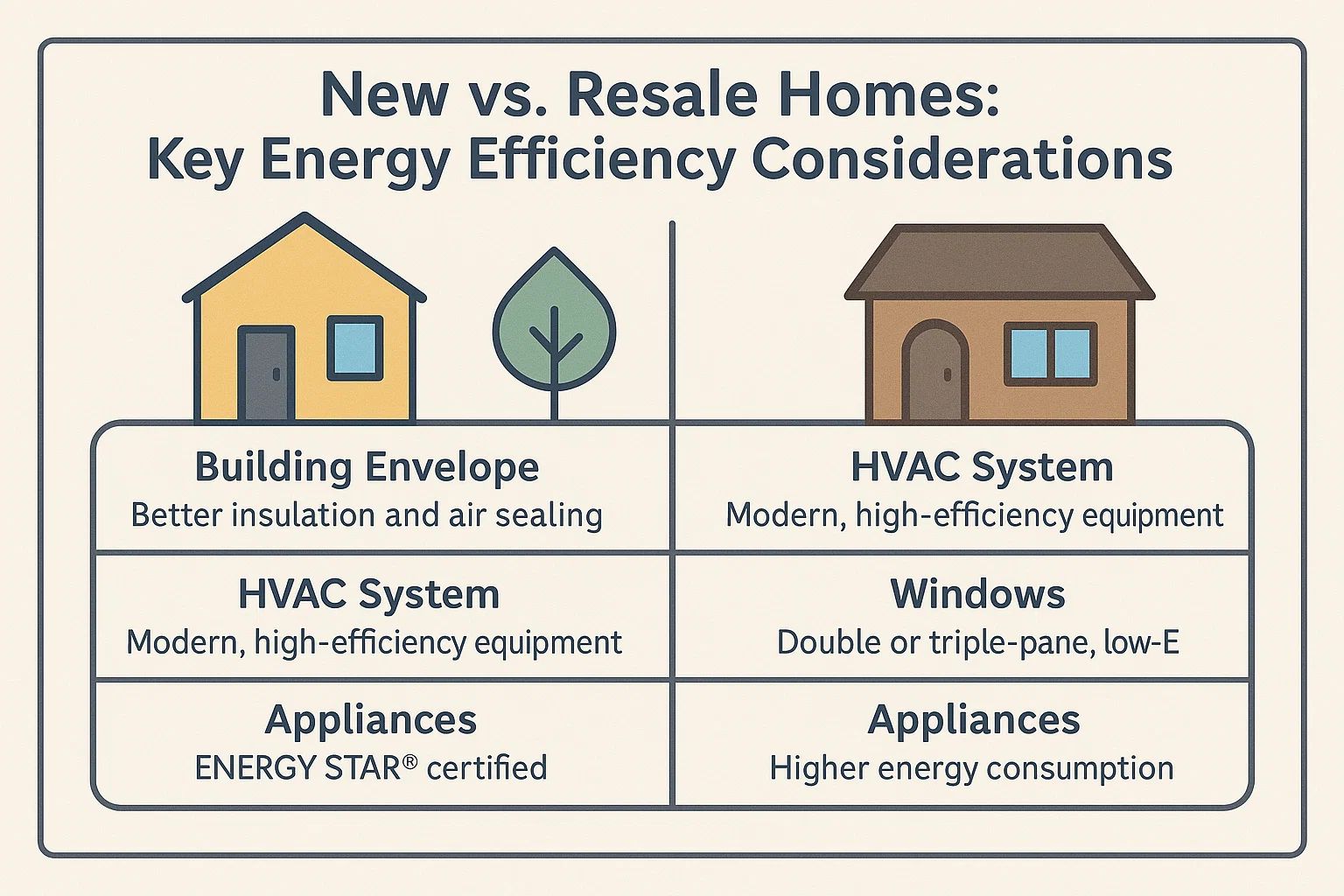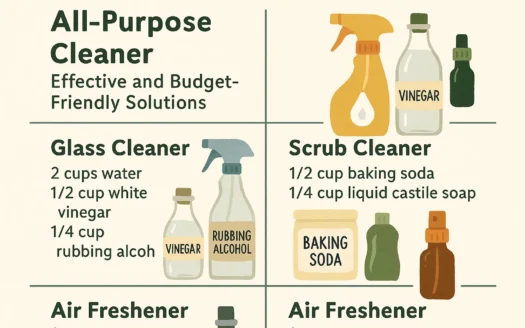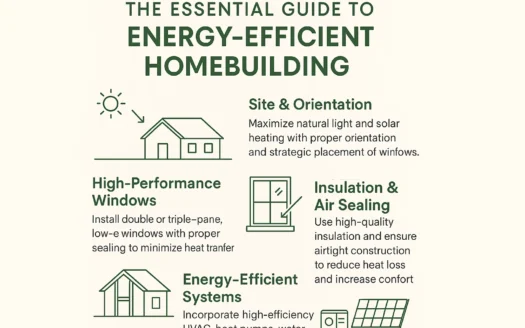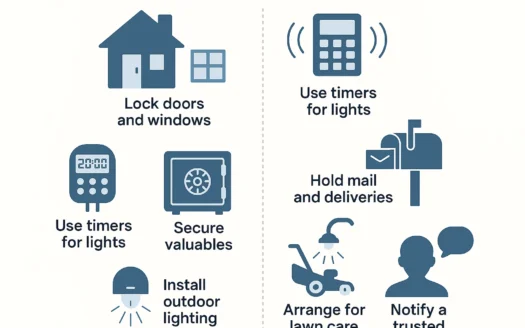New vs. Resale Homes: Key Energy Efficiency Considerations
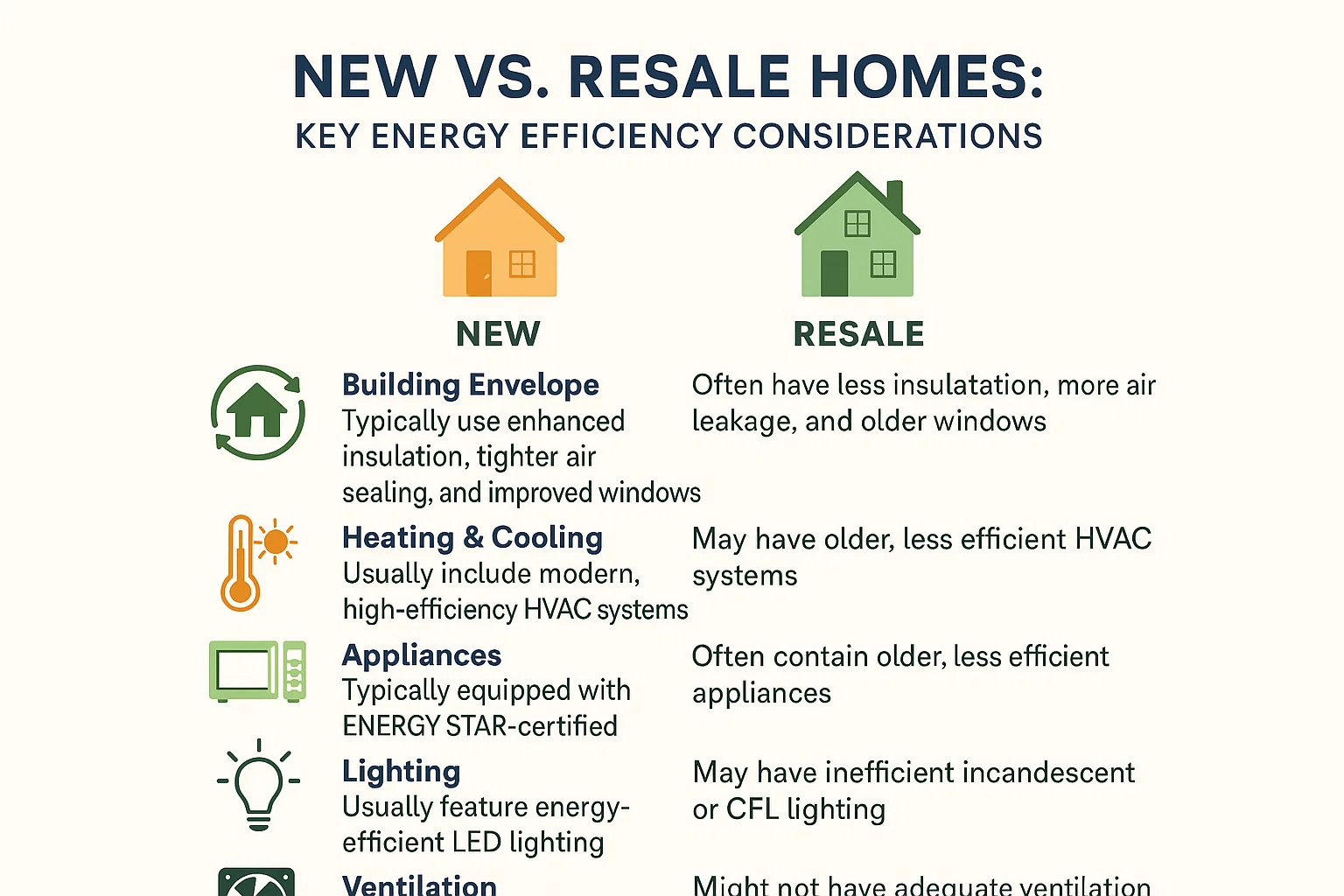
New vs. Resale Homes: Key Energy Efficiency Considerations
When deciding between purchasing a resale home or new construction, energy efficiency is a critical factor that often goes unnoticed. From insulation to modern building techniques, the hidden elements of a home can significantly impact long-term costs and comfort. Here’s what you need to know about how new and older homes compare in terms of energy performance.
The Rise of Sustainable Living
Modern homebuyers increasingly prioritize sustainability, and new homes often deliver on this demand. Many newly constructed houses incorporate eco-friendly designs that reduce environmental impact and lower utility bills by up to 30%. Advanced features like improved insulation, high-efficiency HVAC systems, and low-emissivity windows help maintain consistent indoor temperatures while minimizing energy waste.
In addition to cost savings, newer homes often provide better indoor air quality due to tighter construction that limits dust and pollen infiltration. This is particularly beneficial for individuals with allergies or respiratory concerns. These homes are designed to create a thermal envelope, ensuring quieter interiors and a more comfortable living environment year-round.
Built-In Efficiency in Modern Homes
While older homes can be retrofitted with energy-efficient upgrades, such projects often require significant time and expense. New constructions, however, come with these features already integrated. Industry reports indicate that today’s new homes are 30% more energy-efficient than those built just five years ago—and vastly outperform properties a decade or older.
Key elements in new builds may include:
- High-performance insulation in walls and attics
- Energy-star rated appliances and HVAC systems
- Low-UV windows designed for regional climates
Understanding the HERS Index
The Home Energy Rating System (HERS) Index is a valuable tool for evaluating a home’s energy performance. A lower HERS score indicates greater efficiency, with benchmarks set as follows:
- 130 HERS: Average resale home
- 100 HERS: Standard new construction
A new home scoring 70 on the HERS Index, for example, would be 30% more efficient than a typical new build and 60% more efficient than the average resale property. Builders can provide a HERS report detailing energy features and projected utility costs, helping buyers anticipate long-term savings.
Long-Term Benefits of Energy-Conscious Choices
Investing in an energy-efficient home not only reduces monthly expenses but also enhances overall comfort and air quality. With heating, cooling, and water heating accounting for a substantial portion of household costs, prioritizing efficiency during the homebuying process can lead to lasting financial and lifestyle benefits.
